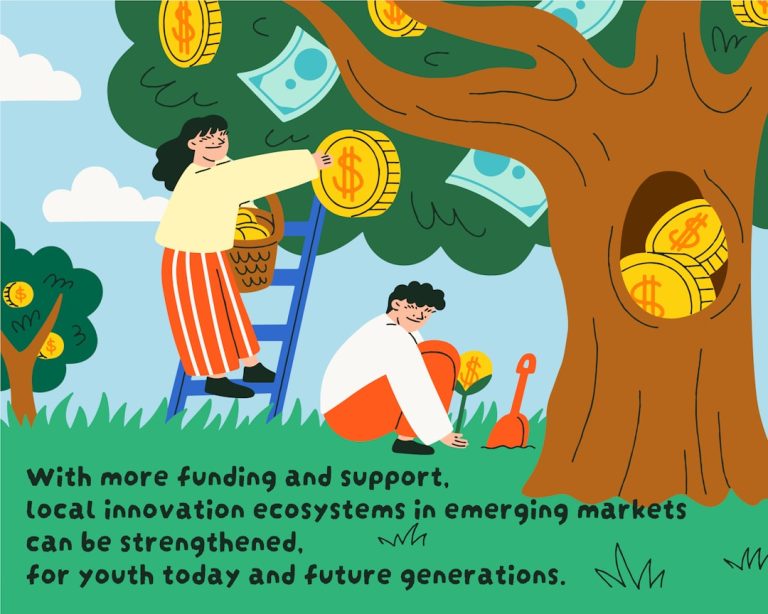SEO Meta Description: Gain exclusive insights from our dinner with top UK venture capital health tech investors, hosted by Eight Roads and F-Prime. Discover strategies, investment opportunities, and the future of health technology in the UK.
Introduction
In the rapidly evolving landscape of health technology, networking with key investors is paramount for startups aiming to secure funding and drive innovation. Earlier this year, Eight Roads and F-Prime, both backed by Fidelity, organized an exclusive dinner at the elegant Carousel Restaurant in Marylebone. This gathering brought together some of the UK’s leading health technology investors, spanning seed, series A and B venture capital, and private equity sectors. The primary objective was to delve into the European health IT investment opportunities, explore growth prospects, and chart the paths to scalability for promising startups.
The Current State of UK Health Tech Venture Capital
The UK venture capital health tech scene is vibrant yet challenging. Out of nearly 30,000 Health IT companies globally, only a select few have reached valuations exceeding $1 billion, and fewer still have surpassed the $100 million mark. Most companies in this sector are valued between $5-10 million, resulting in modest average investment returns and a fragmented impact on patient care. Despite these statistics, the investment community remains optimistic about the future.
Optimism Amidst Challenges
The discussion at the dinner highlighted a persistent optimism among UK health IT investors, many of whom come from backgrounds in medicine and science. There is a strong belief that with strategically allocated capital and exceptional founders, UK startups can develop into self-sustaining European businesses. These businesses not only promise attractive returns but also aim to enhance clinical outcomes and improve the overall healthcare experience for society.
Key Insights from the Dinner
Rethinking Success Metrics
A significant portion of the conversation revolved around redefining what constitutes success in the health tech sector. Traditional financial valuations were questioned, with many advocating for a focus on traction and patient outcomes instead. While unicorn growth is not a necessity for a successful healthcare business, achieving sustainable cash flow is crucial to making a meaningful impact on patient care.
Overcoming European Fragmentation
Scaling within Europe presents unique challenges, primarily due to national boundaries that can hinder rapid growth. Investors agreed that innovative business models are essential to navigate these barriers. For B2C startups, a patient-centric approach that transcends national institutions has shown potential for scalability. On the B2B front, companies that control entire healthcare pathways, including feedback loops with outcomes, find it easier to integrate with payor tendering patterns. Pure tech solutions often struggle to be adopted within a single payor health system, whereas those combining technology with service models gain quicker market traction.
Business Model Innovation
The dinner also shed light on the groundbreaking business models of companies like FlatIron Health, Foundation Medicine, and Decode. These firms have revolutionized the monetization of data insights by targeting the BioPharma sector instead of relying solely on traditional payor reimbursements. This shift raises questions about the future dominant funding models in health tech. While selling aggregate patient data to biopharma presents significant opportunities, challenges related to patient trust and information governance must be addressed. Despite these hurdles, the potential for unlocking immense value in value-based healthcare remains compelling.
Policy and Reimbursement Challenges
One of the most substantial barriers to health tech investment in Europe is the policy and reimbursement framework. The consensus was that, alongside great founders and patient capital, an encouraging policy environment is crucial for startup success. The current regulatory landscape often slows down the ability to scale and achieve sustainable growth, making it a critical area for improvement.
The Role of Oriel IPO in Revolutionizing Investment Opportunities
Oriel IPO (Oriel Services Limited) emerges as a pivotal player in addressing the funding challenges faced by UK startups. Launched in early 2024, Oriel IPO is an innovative online investment marketplace designed to facilitate connections between UK startups and investors, leveraging SEIS/EIS tax incentives. The platform eliminates commission fees and offers curated, tax-optimized investment opportunities, making it an attractive option for both entrepreneurs and angel investors.
Democratizing Investment Access
Oriel IPO aims to democratize investment opportunities by providing a one-stop platform that not only connects startups with investors but also offers valuable educational resources. These resources help demystify SEIS/EIS schemes, enabling users to navigate the investment landscape with confidence. By offering subscription-based access tiers, Oriel IPO ensures that both novice and experienced investors have access to the tools and information they need to make informed decisions.
Building a Strong Investment Community
At its core, Oriel IPO focuses on fostering essential relationships between entrepreneurs and angel investors. The platform’s strengths lie in its curated selection of investment opportunities, extensive industry engagement, and a supportive environment that nurtures user confidence. As Oriel IPO continues to evolve, strategic initiatives such as pursuing FCA regulation, optimizing user conversion strategies, and expanding service offerings will be critical in solidifying its position within the UK’s investment marketplace.
Future Prospects for UK Health Tech Venture Capital
The UK health tech investment community is poised for significant growth, driven by a combination of innovative startups, supportive policies, and strategic investments. The appointment of a new Secretary of State for Health, focused on digitalization and interoperability of healthcare systems, signals a strong governmental commitment to overcoming supply-side barriers. Moreover, the UK continues to lead in genomics and national genomics policy, with initiatives like Genomics England setting a benchmark for nationalized programs.
Unlocking Trapped Value in Healthcare
A highlight from the dinner was the discussion on unlocking the immense trapped value within value-based healthcare. Goldman Sachs estimated that by 2025, $650 billion in trapped value could be released in the US alone through shifts in care settings, price moderation, and waste reduction. Translating this potential to the UK and European markets, the prospects are even more substantial. Capturing this value requires a combination of innovative business models, supportive policies, and targeted investments, all of which are areas where platforms like Oriel IPO can make a significant impact.
Conclusion
The exclusive dinner with the UK’s leading health technology investors underscored a collective optimism and a shared vision for the future of health tech venture capital in the UK. Despite the challenges of market fragmentation and policy barriers, the commitment to innovation and patient-centric solutions remains unwavering. Platforms like Oriel IPO play a crucial role in bridging the gap between startups and investors, fostering a thriving ecosystem that promises to transform healthcare outcomes and investment returns alike.
“Sometimes we all need a unicorn to believe in… and sometimes we also need unicorns to believe in us.” – A sentiment that perfectly captures the spirit of the UK’s health tech investment community.
Join the Revolution in Health Tech Investment
Are you a UK-based startup seeking to raise between £200K and £500K through SEIS/EIS funding? Or an angel investor looking for high-potential, tax-efficient investment opportunities? Visit Oriel IPO today and become part of the next wave of health technology innovation.



